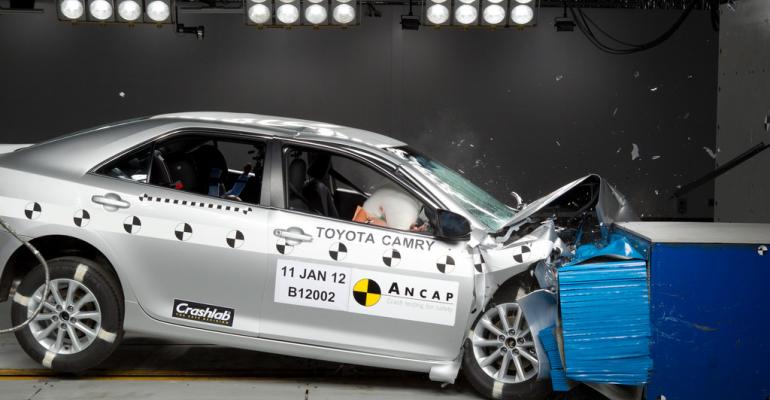The increasing introduction of 5-star safety-rated cars means a third fewer Australians will be killed or injured by 2020 compared with 2001 when no top-safety-rated cars were on the roads, the Australasian New Car Assessment Program says.
ANCAP tells a safety conference in Sweden that it estimates 40% of the distance traveled in vehicles this year in Australia will be in 5-star cars and predicts this will increase to nearly 70% by 2020.
The 24th International Technical Conference on the Enhanced Safety of Vehicles in Gothenburg was told Australia’s societal cost savings are estimated to be more than A$2 billion ($1.55 billion) a year.
“As a result of safer cars, the risk of being killed or seriously injured on Australia's roads today is halved compared to 15 years ago,” ANCAP CEO Nicholas Clarke says in a statement.
“ANCAP has been instrumental in increasing car safety and this will only increase as ANCAP continues to raise the bar through increasing requirements.”
The independent auto safety rating agency is under siege from some quarters of the Australian industry that argue it will not be needed once vehicle production ends in Australia in 2017.
A paper given at the conference on vehicle safety trends and the influence of NCAP safety ratings, says the uptake of key safety features such as side-curtain airbags, electronic stability control and intelligent seatbelt reminders between 2001 and 2014 was influenced strongly by the ANCAP rating system.
“Every dollar invested in ANCAP translates to a saving of several hundreds of dollars in societal crash costs,” Clarke says.
“We can expect to see similar savings across other world regions in which non-regulatory NCAP programs exist.”
The paper is one of four published by ANCAP at the international conference organized by the U.S. Department of Transportation's NHTSA to share innovative advances in vehicle safety and encourage international cooperation.
It is being attended by governments, automobile manufacturers and suppliers, safety researchers and professionals, medical, insurance, legal and policy professionals, consumers and academia from across the globe.





